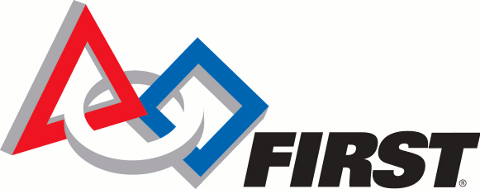About FIRST
FIRST at a glance
FIRST (For Inspiration and Recognition in Science and Technology) is a multi-national, non-profit organization aimed at inspiring an interest in science and technology in today’s youth. Since its founding in 1989 by inventor and entrepreneur Dean Kamen (creator of the Segway Human Transporter), FIRST has positively impacted the lives of young students around the world through its accessible and innovative programs. Designed to inspire and encourage participants to pursue careers in science, technology and math, these programs also stress the development of skills in areas such as teamwork, public relations, strategy, dedication, and outreach, which are helpful and often necessary in future careers and endeavors.
Growth and Impact
The FIRST Robotics Competition was first held in 1992 with only 28 teams in a high school gymnasium in New Hampshire. Since then, FIRST has grown tremendously, now reaching over 130,000 students with numerous mentors and volunteers. FIRST has also expanded to include countries around the world, including Brazil, Great Britain, Israel, and Canada.
According to a recent study done by Brandeis University, students who participate in FIRST are far more likely to pursue a career in science, technology or engineering and achieve a more extensive education in their field of choice. For more information on the impact of FIRST and the Brandeis study, please visit the FIRST website.
Gracious Professionalism
Originally coined by Dr. Woodie Flowers, “Gracious Professionalism” is much more than a pleasant phrase. One of the core concepts of FIRST, Gracious Professionalism is meant to apply not only to behavior during FIRST competitions, but also as a guide for participants throughout the rest of their lives.
FIRST Competitions
FRC
FRC (FIRST Robotics Competition) is the oldest competition in FIRST and geared toward high school students. Each year in January, FIRST releases a unique new “game” which challenges participants to build a robot to overcome the tasks involved. The game often includes several aspects and teams must choose which ones they wish to focus their robot’s abilities toward.
Participants are given only six weeks to complete their robot using a standard kit of parts from FIRST as well as guidance from volunteers and mentors. At the end of this period, teams send their robots to their first regional competition and may also choose to participate in one other regional. The regional competitions occur in several locations around the nation from early March through April. The FRC championship event is then held by FIRST in St. Louis, Missouri around mid to late April.
Awards are bestowed based upon a wide range of criteria which rewards not only technical excellence but also the team’s fulfillment of FIRST ideals such as gracious professionalism and team spirit. The Chairman’s Award is the most prestigious award available in FIRST and is awarded to the team who best embodies these ideals.
Team 694 has participated in the FIRST Robotics Competition since 2000. To learn more about our team and its history, please visit our Team section.
FTC
FTC is a national program which allows creative and intelligent students to compete head to head in various sports-related challenges. The participants, composed of coaches, mentors, and volunteers, are responsible for designing, building, and programming their robot to compete in alliances against other robots. The annual challenges require strategic planning and dedication from all team members. Awards are given during the competition both for the robot and real world achomplishments.
Started in 2005, FVC (FIRST Vex Challenge) was FIRST’s newest competition. Similar to FRC, FVC was also directed toward high school students with all of the same FIRST ideals and spirit, however the primary purpose of FVC was to reach more students through its more affordable and accessible nature. This was partially achieved by making the primary competition material a significantly upgraded version of the FIRST Robovation Kit, now known as the Vex Robotics Design System.
Despite its recent beginnings, FVC quickly grew to accommodate over 400 teams and some 4,000 students in 2006. Unlike its older counterpart, FVC does not include the same strict time limitations on robot construction as FRC as the game is released around September and competitions commence in November and continue until March. A championship event is then held simultaneously with that of FRC in Atlanta, Georgia during late April.
In 2008, FVC was discontinued in favor of FTC (FIRST Tech Challenge).
FLL
Started in 1999, the FLL (FIRST Lego League) is directed toward the younger audience of 9-14 years where the primary material of construction is the Lego Mindstorms Kit. Quickly expanding, the FLL now includes over 9,200 teams in 45 countries around the world. Meant to instill the same wonderment in science and technology at an earlier age, the FLL is comprised of two major parts. Participants must first create a robot to complete a new challenge released each year, and then research and propose a solution to a current technological problem. The challenge is released in September with the competition season taking place from November to January.
FLL Tournaments hosted by Team 694
Since 2005, Team 694 has hosted the Manhattan Borough Lego League Tournament. In addition, we have provided FLL mentoring to local schools such as I.S. 89 across the street from Stuyvesant. Visit our Outreach page to learn more about our efforts to inspire middle school students.
